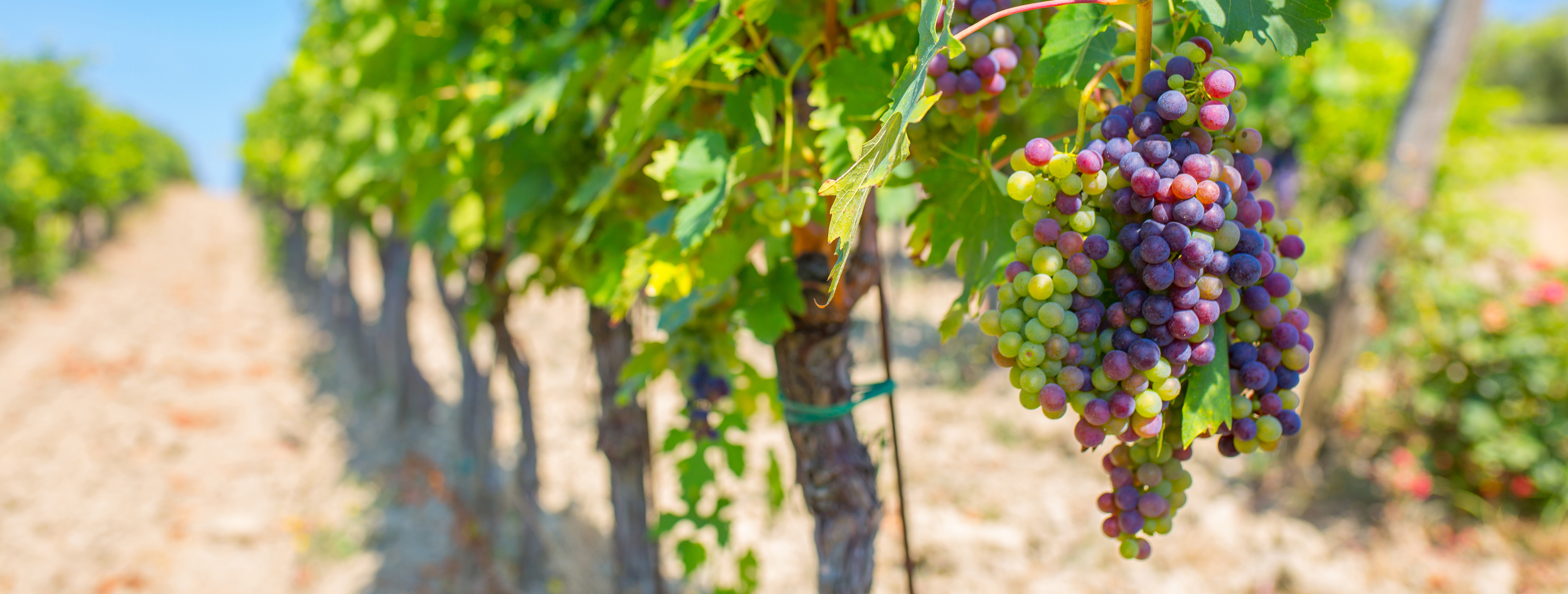Plants make up 80% of the food we eat, produce 98% of the oxygen we breathe and create the environment that we live in. But plants are under constant threat from pests and diseases, causing great losses in food production and affecting the income of farmers and vulnerable rural communities worldwide.
To protect our plants as well as ourselves, it is necessary to control plant pests and diseases with products known as pesticides. However, the overuse and misuse of pesticides can hurt health, biodiversity and the environment. As part of the EU Green Deal, the European Commission is setting the ambitious goal of reducing the use and risk of chemical pesticides, as well as the use of more hazardous pesticides, by 50% by 2030. Several CBE JU-funded projects are contributing to this goal by developing novel, highly effective and eco-friendly pesticides that are entirely made from sustainably sourced raw materials. Here are two examples to improve wine vines, olive and almond trees’ health.
Combatting grapevine diseases
Grapevine trunk diseases are one of the most destructive diseases of grapevine in the last decades, causing vineyard destruction in all wine-grape-growing regions of the world. It isn’t a single disease, but a group of diseases, caused by many different fungal pathogens. After infection grapevine trunk diseases can kill branches, trunks and eventually the entire vine. To help vine growers combat the pathogens, the CBE JU-funded BIOBESTicide project is developing an innovative, bio-based control agent.

The consortium, led by French small business Greencell, is using waste from sugar production to grow a microorganism called Pythium oligandrum. This naturally occurring microorganism stimulates the natural plant defences and provides disease protection of up to 70%, as preliminary results in greenhouse and field trials have shown. The aim of the project is to build a demonstration facility that is able to produce 10 tons of the new biopesticide per year. This innovative bio-based product will offer vine-growers a unique new tool to protect their vines and their income while at the same time safeguarding human health and the environment.
Bio-pesticides for olive & almond trees
One of the most harmful plant bacteria worldwide is Xylella fastidiosa, which causes disease in a wide range of plants, with significant negative economic impact on agriculture and the environment. In Europe, the bacteria has caused appalling damage in olive yards, making leaves and branches dry out, and eventually killing the plant. After the first outbreak in Apulia, Italy, ten years ago, which caused the death of millions of olive trees, distinct strains of the bacterium were found in a number of Mediterranean countries, including France, Spain and Portugal as well as, most recently, in Israel and Lebanon. Additionally, other economically significant woody species, such as grapevines and almonds, are also impacted by Xylella.
The CBE JU-funded BIOVEXO project is working to develop a range of innovative and novel bio-based pesticides that either prevent or treat the disease in both olive and almond trees. Promising results have already been obtained in the greenhouse and are currently being evaluated and verified in large field trials in several locations in the Mediterranean, specifically Apulia, Mallorca, and Alicante. If BIOVEXO is successful, producers of olives, almonds, and potentially, other valuable crops will be able to switch to sustainable and organic solutions to protect their plants against a devastating disease.
Towards sustainable plant health
To reduce our dependency on conventional pesticides, we need many more bio-based alternatives like the ones described above, helping us protect plant health safely and sustainably.
Thanks to projects like BIOBESTicide and BIOVEXO, the farmer’s toolbox is slowly getting filled.
Author: CBE JU Project Officer, Oliver Zobell


